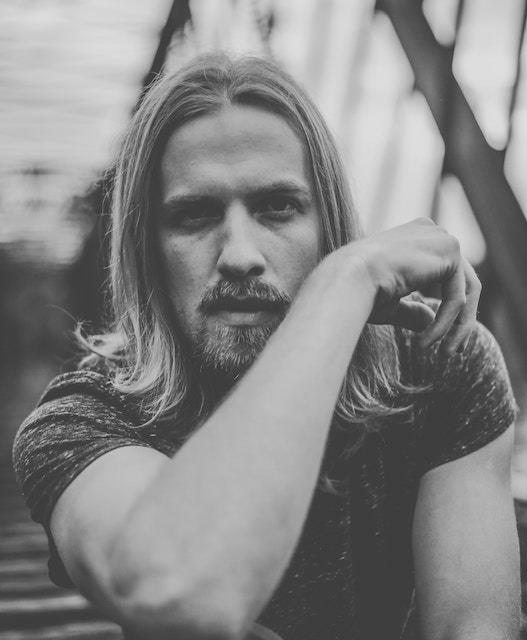The #MeToo movement is the most important cultural shift happening today, with truly historic changes taking place within both institutions and individuals.
While I’m gladdened that predators and abusers are being unmasked and toppled, my heart has ached as friend after friend posted their own #MeToo story on social media.
The sheer volume of women I personally know who have been wounded by the sexual misconduct of men is staggering. The dark side of male sexuality is out in the open, and my heart aches.
Jodie Foster has called for a bigger, more complicated dialogue and to hear from the other side, as have others, including Elephant Journal’s Crystal Jackson.
Long before the #MeToo movement, Diane Musho Hamilton and Ken Wilber called for an evolution in the way we approach sexual harassment. It is in this climate, where male confessions are both dangerous and called for and #MeToo is morphing into #TimesUp, that I come with a story.
As #MeToo shifted from quid pro quo harassment, rape, and groping to include sexual manipulation, coercion, touching, and unwanted attention, it became a personal reckoning. I am not famous, wealthy, or in a position of power, but at least one woman might have thought of me when she posted #MeToo.
The most grievous sins I committed were long before becoming an adult. But even if I consider only actions since my 18th birthday, I still see a young man who thought and acted with little regard for the feelings or desires of women, and who was selfish, coercive, thoughtless, and manipulative.
For this I am sorry. I am profoundly sorry. And I have been sorry for decades. This sorrow and regret has shaped my personal development, relationships, and choices in ways that are not possible to fully describe here. If I could travel in time to change only one aspect of my past, it would be to erase my misconduct.
I am also not the same person who was overly aggressive toward women, who got in their faces, touched them in ways they didn’t want, and manipulated their emotions, intentionally and otherwise. I was selfish and self-centered, unaware of how threatening and frightening I could seem, or how my size and strength could intimidate.
Many good men didn’t start off as good. They learned goodness through maturing, and a long process of error correction.
Diane Musho Hamilton, a Zen Buddhist teacher and Integral thinker, and Ken Wilber, a Buddhist and the father of Integral Theory, recorded a conversation in 2006 called “Evolving our Approach to Sexual Harassment.”
They make a compelling case that our approach to sexual harassment needs to evolve, to take into account biology, the sexual dynamic between the genders, and the ways both genders wield their power. For those unfamiliar with integral theory, it is a theory of everything, uniting and integrating divergent areas of inquiry along developmental lines. While it is not explicitly Buddhist, it is a Buddhist type of undertaking. To learn more, you can read this short introduction.
I’d like to use a few of their points as a way to frame my story.
Diane Musho Hamilton: men’s sexuality is what it is, but biology is not destiny.
I am a masculine man. Physically, that means hairy, muscular, bearded, deep voice. I am also confident, assertive, and, at times, aggressive. I am most comfortable focusing on one thing and happiest when completely free and unencumbered. And I enjoy the role of seducer.
Wilber once described how women who receive testosterone therapy report two phenomena: they stop crying, and they start wanting or thinking about sex all the time. This offers a tiny glimpse into male sexuality.
Men’s sexuality is what it is. At times the male body is disinclined toward sentiment and simply inclined to f*ck. And part of that inclination is biochemical.
Men and women are built differently. This difference is what makes possible the spark of sexual polarity. That spark is life itself.
As we complexify our #MeToo conversations, we must consider biology. This does not mean, “Boys will be boys, so just deal with it.” Biology is not destiny, after all. However, according to Wilber, biology accounts for about 25 percent or less of why men are as we are. As Hamilton points out, the beauty of consciousness is that we can choose to work with our hardwiring rather than pretend we are at its mercy. But we cannot ignore its role.
Ken Wilber: the traditional roles that bind and hurt women also bind and hurt men.
As a boy, I learned that if I didn’t approach and start talking to a girl, we wouldn’t have a conversation. If I didn’t ask her out, there would be no date. If I did not make the first move to kiss her, we’d never kiss.
I got turned down a lot. And on occasion I was accepted. From an early age, I learned that the good stuff happens at the edge, pushing against boundaries.
So I pushed boundaries and still do today. I pushed too fast and hard, and I learned to be more gentle, but there’s a lot of anxiety and fear around approaching a woman, even more anxiety to ask her out, and then there’s the potential humiliation of rejection. Guys have accepted this without complaint since…well, always. Call it our initial contribution to the continuation of the human race.
But now, as Hamilton points out, men carry the added stress of thinking they might be doing something wrong.
The #MeToo movement has emboldened women to speak out against unwanted sexual attention and to express their offense. And certainly some behavior, such as catcalling, stalking/following, and repeatedly asking for dates after being rejected is objectively offensive, as well obnoxious, scary, and harassing.
And then there is other behavior for which there is a time and a place. As we move forward with #MeToo, especially when delving into the area of unwanted sexual attention, we must be very careful not to denigrate appropriate, healthy, and playful expressions of male sexuality. And I think it’s equally unwise to promise a world in which women will never receive sexual attention that they do not eagerly invite. .
Diane Musho Hamilton: women are attracted to men with power.
And so are men. Most of us are attracted to people with power.
From my teenage years, I felt called to the Christian ministry, and after divinity school I became a hospice chaplain. A hospice volunteer, a married woman 15 years older than me, began visiting my office to talk about her survival and recovery from a terminal disease. Perhaps the clerical collar I wore lent me the air of a priest, for our conversations took on the tone of pastoral counseling. After several weeks of talking, she began offering me neck massages. These massages were followed by hugs, which she initiated.
I was a novice minister in my 20s, inexperienced, and unprepared for such a situation. My mistake was not establishing a clear boundary when she first offered a massage. Instead, I drew the line when she kissed me, which was, of course, far too late.
I was not a man with power, in my self-image, but I was for her. I recall the intoxicating combination of arousal, confusion, and fear of that moment, the thrill of the new and forbidden, and not knowing what it all meant, nor understanding how to say no without giving offense. So I let her kiss me, then assiduously avoided her thereafter.
As our conversation and understanding around #MeToo evolves—and it will and must evolve—we should consider also this attraction to men with power and position. Wilber also points out that where there is a longing to be close to power, there is the potential to be injured. To ignore this dynamic paints an incomplete picture.
Ken Wilber: we need more men with world-centric ethics.
After the hospice, I taught at several universities in Japan. Each year, a few of my students developed crushes on me. I know this because some wrote me love letters.
Some of my male colleagues took advantage of their adoring students. There were no consequences for male professors sleeping with female students at that time in Japan, so it wasn’t rules or legislation that prevented me from doing the same. The relationship between teacher and student is one of trust and unequal power. Sex between individuals in an unequal power dynamic can compromise trust, even when it is consensual sex between adults.
The world needs more trustworthy men in power, not fewer.
As our #MeToo conversations evolve, men’s interpersonal intelligence, empathy, and ethics must evolve in step.
The #MeToo movement cannot conclude merely with stronger legislation, stricter workplace rules, and longer prison sentences for rapists. We need to teach boys how to take a third-person perspective. By doing so, they will become men who can internalize external rules, and then act in the best interests of all people. In other words, we need more men with a world-centric level of ethical development.
As we denounce and call to account the abusive and predatory behavior of men, let us, at the same time, take care that we don’t denigrate the healthy expressions of male sexuality. Let us value the differences in our bodies and spirits that make the spark of sexual polarity possible, and let us encourage boys to develop empathy and emotional intelligence. Empathy is taught in Norwegian public schools; why not everywhere else?
And for men, such as me, who have understood the extent of our sin, who have sought to correct our ways, and are willing to step forward, we do not need or deserve admiration or praise. Your compassion and forgiveness, however, would be most welcome. I have been the problem. I would also like to be part of the solution.
~
~
~
Author: Todd Schuett
Image: Unsplash/Miranda Wipperfurth
Editor: Travis May
Copy Editor: Callie Rushton


 Share on bsky
Share on bsky





Read 22 comments and reply